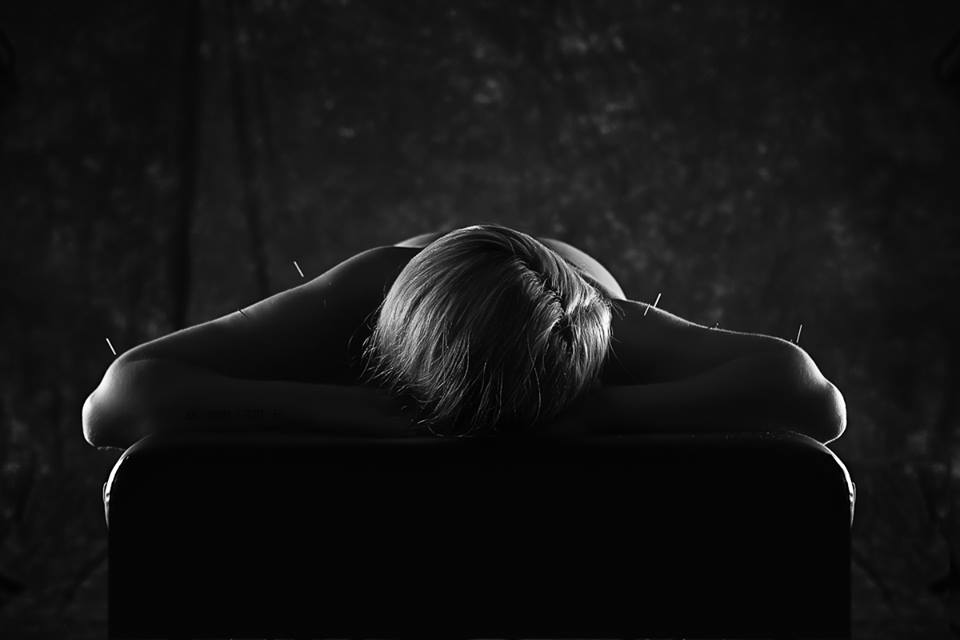
Have You Heard These Acupuncture Myths?
As an acupuncturist, I do a lot of myth debunking. It’s understandable. After all, acupuncture speaks an entirely different language from the one through which most Westerners learned to see the world. However, with acupuncture continuing to grow in popularity and gain acceptance by mainstream medicine, it’s important to clarify a few myths and misconceptions that have a strong hold on our collective psyche.
Here are the five most common myths and misconceptions I hear about acupuncture.
“Acupuncture is only for pain.”
Ask most people what acupuncture helps with and the overwhelming majority will say pain. It is true that acupuncture can work wonders for back pain, headaches, neck pain, shoulder pain, leg pain, postoperative pain, and pretty much any other kind of pain you can think of. However, pain is just one of many ailments for which acupuncture can provide relief.
Acupuncture alleviates digestive problems, menstrual irregularities, allergies, insomnia, stress and anxiety, asthma, and several other conditions. While many acupuncturists are generalists who treat a wide range of ailments, some specialize. So do your little homework! Find that special acupuncturist, knowledge, skill and licensed!
“Acupuncture doesn’t work because I’ve had it once and nothing changed.”
I hear this one a lot. It’s a myth that is easily debunked by thinking about your car. If you go for years without getting your car checked, when you take it to the mechanic it’s going to require more work than if you had come in for regular tune-ups. Similarly, if you’ve been experiencing back pain for six months, it will probably take more than one acupuncture treatment before you notice results.
After your first treatment, an acupuncturist usually will provide an estimate for how many treatments you’re likely to need. This is always an estimate because response times to acupuncture can vary widely, but it’s a good guideline.
Acupuncture is a cumulative process, much like going to the gym: You don’t start running faster or lifting heavier weights after just one trip. That said, most people notice at least some changes after 10 acupuncture treatments. If you haven’t seen any improvement after giving it 10 appointments, I suggest trying another acupuncturist.
“Acupuncture doesn’t work because we don’t know how it works.”
This is an understandable misconception. When it comes to concepts with which we are unfamiliar, it’s comforting to have solid proof. Although there is tentative evidence of acupuncture’s efficacy, definitive, Western-friendly proof of how acupuncture works is still hard to find.
There is good reason for this. Controlled, double-blind trials are inappropriate for studying acupuncture. Most acupuncture research models look at a standard selection of acupuncture points to determine if they are effective for a certain condition. But from an acupuncture perspective, one condition can have several different causes—and therefore would require completely different acupuncture points.
Researchers are beginning to look at acupuncture using MRI. I believe this method of studying acupuncture is the most promising yet. Rather than concentrating on people’s perceptions, which can be misled by placebos or prejudices, the MRI studies look directly at how acupuncture changes brain activity. These MRI studies also address findings from previous research that show effects from fake or “sham” acupuncture. Through MRI, we know that both real and sham acupuncture relieve pain but that the effects on the brain are considerably different.
We may not know yet exactly how acupuncture works, but we are gaining a better understanding of the therapeutic effect that acupuncture causes.
“Acupuncture hurts.”
I disagree with acupuncturists who say that acupuncture needles are so thin you can’t even feel them. In my experience, most people feel acupuncture. That means your ALIVE!! Its a good response, your body is supposed to react to a forgein object inserted into the body (thank you body!
| My patients are my greatest teachers and I am honored to be a part of their journey toward a more vibrant life |
When needles are inserted in the right places, they often produce a feeling of heaviness, like a dull ache. Since this sensation is unfamiliar for most people who have never had acupuncture before, it’s commonly interpreted as pain.
If I describe this dull-achy feeling to people before beginning a treatment, they are less likely to experience the sensation as pain. They are prepared, which means their bodies are less tense. Often the “hurt” associated with acupuncture can be attributed to anxiety about the unknown.
I also make a point of telling my patients that acupuncture—rarely, but on occasion—can cause pain after a treatment. Sometimes needles in certain acupuncture points, after they’re removed, can cause a residual feeling of ache (I call it Qi). When people understand ahead of time that this is a completely normal outcome, their perception of acupuncture as something that hurts seems to shift.
“Acupuncture is religious.” (Also known as “Acupuncture is voodoo.”)
I have been told, “I don’t believe in acupuncture because I’m a Christian.” Although it’s becoming less common as the general public gets more educated about acupuncture, the myth of acupuncture as a religion or supernatural phenomenon remains.
Acupuncture is not religious, nor is it voodoo. There is nothing supernatural or otherworldly happening during an acupuncture treatment. Acupuncture is a healthcare modality designed to help balance your body’s various, interconnected systems.
You don’t need to “believe” in acupuncture in order to experience its benefits because there is nothing to believe in.
I think some of the misinformation surrounding acupuncture’s origins and intentions stems from the word “Qi,” which is often described as “vital energy.”
A better interpretation of what ancient Chinese practitioners meant by Qi is simply oxygen. They understood that oxygen and nutrients were needed throughout the body in order for it to function properly. They called it Qi and Blood, but acupuncture is merely a tool for moving the oxygen and nutrients that our bodies need to thrive.



Sorry, the comment form is closed at this time.